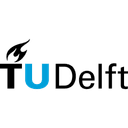This course is part of Path to Climate Neutrality: Theory to Action.
Discover how to lead climate change mitigation initiatives in your organization through this comprehensive course. Learn about greenhouse gas emissions, energy systems, and practical strategies for achieving climate neutrality. The course equips professionals with tools to evaluate mitigation options, calculate emission reductions, and implement cost-effective solutions. You'll master concepts like marginal abatement cost curves and explore key strategies including renewable energy, energy efficiency, and electrification. Perfect for policymakers, sustainability consultants, and professionals looking to drive organizational transformation towards climate neutrality.
Instructors:
English
English
What you'll learn
Understand global temperature rise limits and their implications for climate action
Master current energy systems and sector-specific energy demand analysis
Develop skills in emissions calculation and reduction potential assessment
Learn to evaluate mitigation costs and optimize reduction strategies
Gain expertise in selecting cost-effective climate mitigation alternatives
Understand key components of energy transition implementation
Skills you'll gain
This course includes:
PreRecorded video
Graded assignments, exams
Access on Mobile, Tablet, Desktop
Limited Access access
Shareable certificate
Closed caption
Get a Completion Certificate
Share your certificate with prospective employers and your professional network on LinkedIn.
Created by
Provided by

Top companies offer this course to their employees
Top companies provide this course to enhance their employees' skills, ensuring they excel in handling complex projects and drive organizational success.





Module Description
This course provides a comprehensive introduction to climate change mitigation strategies and tools for professionals. It covers fundamental concepts of greenhouse gas emissions, current energy systems, and emission reduction methodologies. Students learn to calculate emission reductions, analyze costs using marginal abatement cost curves, and evaluate various mitigation strategies including renewable energy and energy efficiency. The course emphasizes practical application, enabling participants to implement climate-neutral solutions in their organizations.
Fee Structure
Individual course purchase is not available - to enroll in this course with a certificate, you need to purchase the complete Professional Certificate Course. For enrollment and detailed fee structure, visit the following: Path to Climate Neutrality: Theory to Action
Payment options
Financial Aid
Instructors

2 Courses
A Pioneer in Energy Systems Analysis and Climate Change Mitigation
Kornelis Blok is a distinguished Professor of Energy Systems Analysis at TU Delft and a renowned expert in climate change mitigation and energy transition. His career began with co-founding Ecofys at age 28, a consultancy company now part of Guidehouse, which pioneered the Sectoral Decarbonisation Approach widely used by companies for emission reduction targets. His academic journey includes positions at Utrecht University, where he earned his PhD in Energy Science and MSc in Physics, before joining TU Delft. As chairman of the Delft Energy Initiative, he oversees all energy research at the university. His contributions to climate science include serving as lead author for the 3rd, 4th, and 6th Assessment Reports of the Nobel Peace Prize-winning Intergovernmental Panel on Climate Change. With over 100 peer-reviewed publications, his research spans industrial energy efficiency, consumption patterns, renewable energy systems, carbon capture and storage, and international climate policies. In 2022, his lifelong dedication to solving energy and climate issues was recognized with the prestigious "Knight of the Order of the Dutch Lion" royal honor.

6 Courses
A Pioneer in Urban Energy Systems and Climate Change Policy
Mirjam Harmelink serves as the manager of the Urban Energy Institute at TU Delft, bringing over 25 years of expertise in climate change and energy systems. Her academic foundation includes a Master's degree in Technology and Innovation from TU Eindhoven, which she completed between 1991-1993. Her career spans significant roles, including work at Ecofys, where she contributed to groundbreaking research on energy efficiency and market barriers, and the National Institute of Climate and Health in the Netherlands. As an independent consultant and project manager for 12 years, she developed expertise in quantifying effects of market failures in end-user energy and evaluating sustainability of district heating networks. At TU Delft, she focuses on urban energy systems, heating transition strategies, and policy evaluation, while contributing to international energy efficiency assessments. Her work has influenced European energy and climate policies, particularly in areas of district heating systems and urban energy transitions.
Testimonials
Testimonials and success stories are a testament to the quality of this program and its impact on your career and learning journey. Be the first to help others make an informed decision by sharing your review of the course.
Frequently asked questions
Below are some of the most commonly asked questions about this course. We aim to provide clear and concise answers to help you better understand the course content, structure, and any other relevant information. If you have any additional questions or if your question is not listed here, please don't hesitate to reach out to our support team for further assistance.



